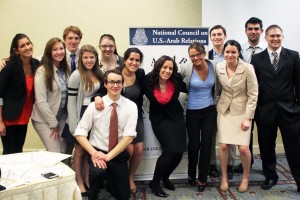‘Friends of Yemen’ group wants aid on faster pace
Source: The Saudi Gazette (Read full story)
International donors must speed up aid to impoverished Yemen to help it complete its delicate political transition and fight Al-Qaeda, ministers warned at a meeting of the “Friends of Yemen” group in London Thursday. The grouping of more than 35 countries and international organizations pledged $7.9 billion (6.06 billion euros) of aid to Yemen in 2012, but little of the funding has been distributed so far. “Yemen is now at a very important and dangerous crossroads,” Yemeni Foreign Minister Abu Bakr Al-Qirbi told a joint press conference with his British and Saudi counterparts, who co-chaired the London meeting.
…



You must be logged in to post a comment.